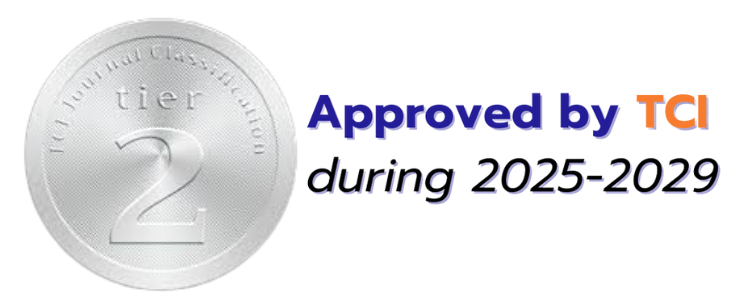การถ่ายโอนความรู้ทางวิทยาศาสตร์ด้วยการจัดการ เรียนรู้แบบบริบทเป็นฐานเรื่องความร้อนกับการเปลี่ยนแปลงของสสาร
Scientific Knowledge Transfer through Context-based Learning on the Effects of Heat on Matter
Keywords:
การจัดการเรียนรู้เเบบบริบทเป็นฐาน, การถ่ายโอนความรู้ทางวิทยาศาสตร์, ความร้อนกับการ เปลี่ยนแปลงของสสาร, Context-based Learning, Scientific Knowledge Transfer, The effects of Heat on MatterAbstract
การวิจัยครั้งนี้มีวัตถุประสงค์เพื่อออกแบบการจัดการเรียนรู้แบบบริบทเป็นฐาน (Context- based learning) เรื่องความร้อนกับการเปลี่ยนแปลงของสสาร ของนักเรียนชั้นมัธยมศึกษาปีที่ 1 เพื่อ เปรียบเทียบผลสัมฤทธิ์ทางการเรียนวิทยาศาสตร์ก่อนเเละหลังเรียนของนักเรียนที่ได้รับการจัดการเรียนรู้เเบบบริบทเป็นฐาน ความสามารถในการถ่ายโอนความรู้ทางวิทยาศาสตร์ และศึกษาความพึงพอใจของนักเรียนที่มีต่อการจัดการเรียนรู้แบบบริบทเป็นฐาน กลุ่มตัวอย่างที่ใช้ในการวิจัยเป็นนักเรียนชั้นมัธยมศึกษาปีที่ 1 ห้อง 8 ภาคเรียนที่ 2 ปีการศึกษา 2562 โรงเรียนเบญจมราชูทิศ ราชบุรี จํานวนทั้งสิ้น 40 คน ซึ่งได้มาโดยการเลือกแบบเจาะจง รูปแบบที่ใช้วิจัย คือ แบบกลุ่มเดียววัดผลก่อนและหลัง (one-group pretest-posttest design) เครื่องมือที่ใช้ในการวิจัย ได้แก่ แผนการจัดการเรียนรู้แบบบริบทเป็นฐาน เรื่องความร้อนกับการเปลี่ยนแปลงของสสาร ชั้นมัธยมศึกษาปีที่ 1 แบบวัดผลสัมฤทธิ์ทางการเรียนวิทยาศาสตร์ แบบวัดความสามารถในการถ่ายโอนความรู้ทางวิทยาศาสตร์ และแบบสอบถามความพึงพอใจที่มีต่อการจัดการเรียนรู้แบบบริบทเป็นฐาน ผลจากการศึกษาพบว่า เมื่อนักเรียนได้เรียนรู้จากการจัดกิจกรรมการเรียนรู้แบบบริบทเป็นฐานทำให้นักเรียนมีผลสัมฤทธิ์ทางการเรียนหลังเรียนสูงกว่าก่อนเรียนอย่างมีนัยสำคัญที่ระดับ 0.05 ความสามารถในการถ่ายโอนความรู้ทางวิทยาศาสตร์ของนักเรียนหลังเรียนสูงกว่าก่อนเรียน อย่างมีนัยสำคัญที่ระดับ 0.05 และความพึงพอใจที่มีต่อการจัดการเรียนรู้แบบบริบทเป็นฐานอยู่ในระดับมาก
The purpose of this research was to develop the learning activity in form of a lesson plan using context-based learning in the effects of heat on matter. It was compared scores between before and after implementing the lesson plan in learning achievement, scientific knowledge transfer, and students’ satisfaction. The sample was 40 students, grade 7 who study in the second semester of 2019 academic year at Benchamarachutid School, Ratchaburi by using purposive sampling and the research design was one-group pretest-posttest. The instruments consisted of 1) 3 lesson plans on the effects of heat on matter using context-based learning. 2) learning achievement test 3) scientific knowledge transfer test that consists of 6 two tailed test questions. 4) students’ satisfaction survey of the lesson. The results showed that the student’s learning achievement and scientific knowledge transfer after studying in the lesson was significantly higher than before at 0.05. The students’ satisfaction of the lessons was at high level.







